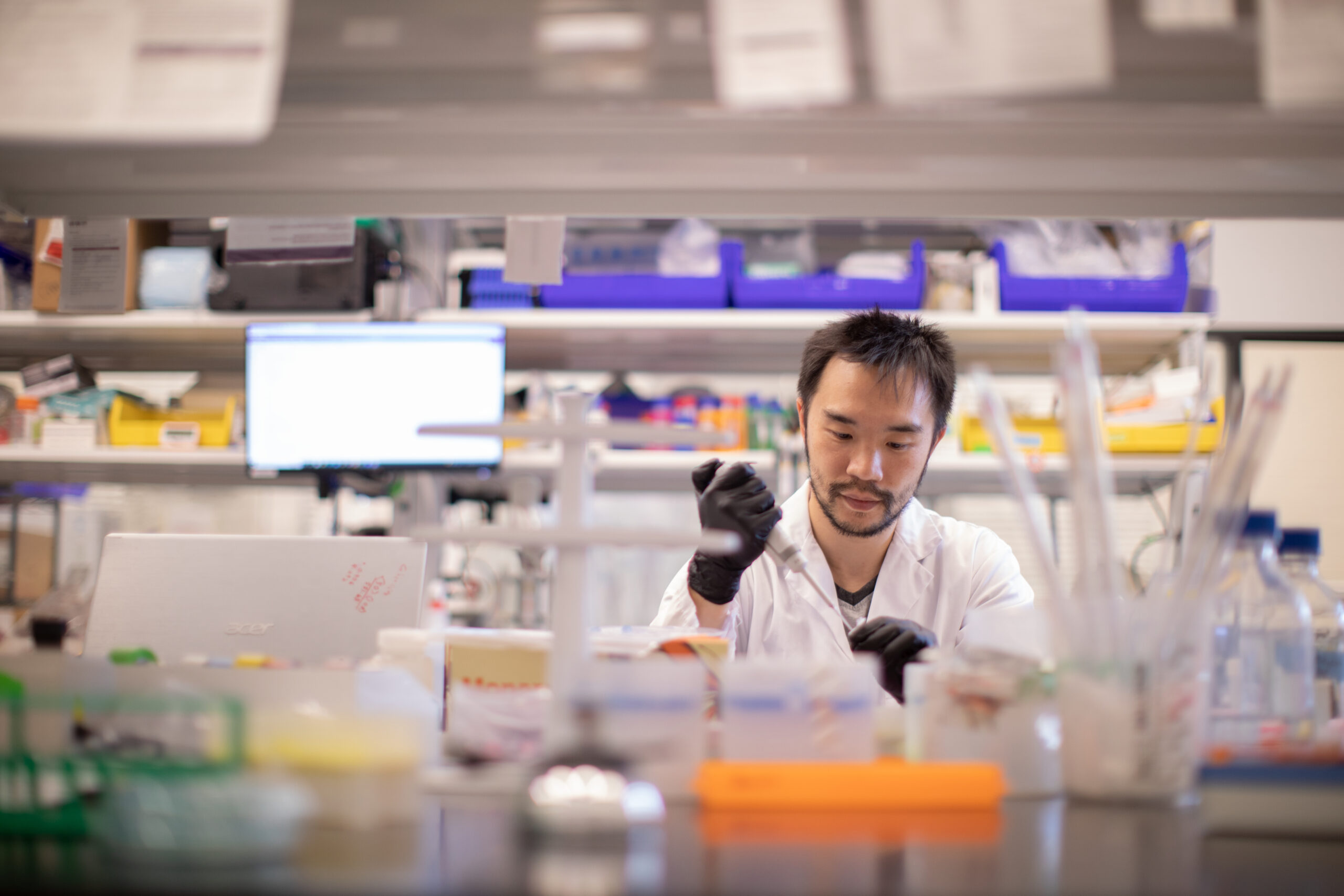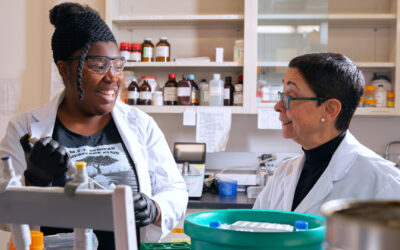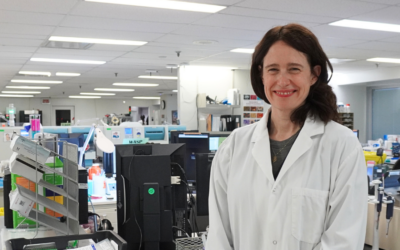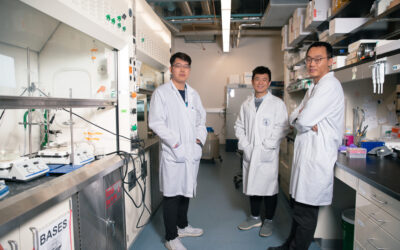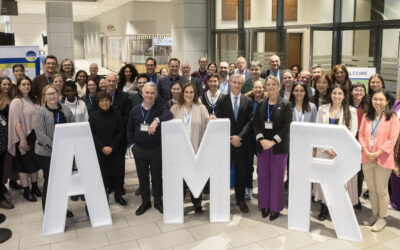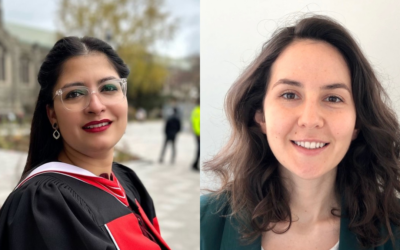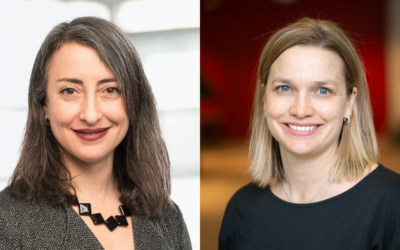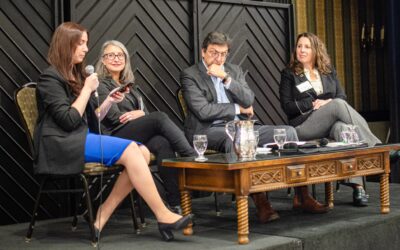News & Events
Events
News
‘DNA origami’ may bring researchers one step closer to a cancer vaccine
January 3, 2024 By Selah Katona University of Toronto engineering researchers have developed a new method to visualize tiny 3D structures made of human DNA that could advance research on a range of applications — including a potential vaccine for certain types of...
New research examines anti-HIV drugs’ effects in pregnancy
Teresa Bennett (left) and Reina Bendayan (Photo credit: Steve Southon) December 18, 2023 By Eileen Hoftyzer Advances in treatment for human immunodeficiency virus (HIV) have not only helped to extend the lives of people living with the virus but can also prevent...
Leading the charge: Microbiology’s evolution and COVID-19
December 14, 2023 “A lot of people are burned out from the COVID-19 response so it’s sometimes hard to recognize how far we've gone in that short period of time and what that means. I think there will be huge changes in the way we deliver microbiology locally and...
Scientists discover new lipid nanoparticle that shows muscle-specific mRNA delivery, reduces off-target effects
From left to right: Institute of Biomedical Engineering PhD trainee Jingan Chen, Leslie Dan Faculty of Pharmacy assistant professor Bowen Li, Li lab postdoctoral researcher Yue Xu December 11, 2023 By Kate Richards A team of researchers based at the University of...
Second annual symposium on antimicrobial resistance highlights opportunities and challenges to tackling AMR
December 7, 2023 By Betty Zou The Emerging and Pandemic Infections Consortium, along with partners bioMérieux Canada, the AMR – One Health Consortium and the Association of Medical Microbiology and Infectious Disease Canada (AMMI Canada), recently co-hosted the second...
World AIDS Day: How EPIC researchers are advancing new treatment strategies and supporting older adults with HIV
Subha Dahal (left) and Alice Zhabokritsky December 1, 2023 By Betty Zou Over four decades after the start of the AIDS epidemic, researchers in the Emerging and Pandemic Infections Consortium are reshaping approaches to target the human immunodeficiency virus (HIV)...
Toronto infectious disease community tackles antimicrobial resistance from multiple angles
(Photo by Roberto Sorin on Unsplash) November 23, 2023 By Betty Zou Earlier this year, the federal government released its Pan-Canadian Action Plan on Antimicrobial Resistance, which details federal, provincial and territorial commitments to address antimicrobial...
How worried should I be about drug-resistant fungi? An expert Q&A with Leah Cowen and Jennie Johnstone
Leah Cowen (left) and Jennie Johnstone November 20, 2023 By Betty Zou We may not need to worry about the zombie fungus in the hit HBO television series The Last of Us but there is another real-life fungal pathogen that we should be paying close attention to. Candida...
Experts gather at EPIC symposium to discuss how to bolster support for infectious disease research and pandemic preparedness
A panel of experts called for sustained funding investments, stronger ready-to-use infrastructure and improved communications to help Canada break the cycle of panic and neglect around infectious diseases. These themes emerged from a discussion at the first annual Emerging and Pandemic Infections Consortium symposium held in mid-October. The panelists included Leah Cowen, vice-president, research and innovation, and strategic initiatives at the University of Toronto, Marisa Creatore, executive director of the Centre for Research on Pandemic Preparedness and Health Emergencies at the Canadian Institutes of Health Research, and U of T President Emeritus David Naylor.


